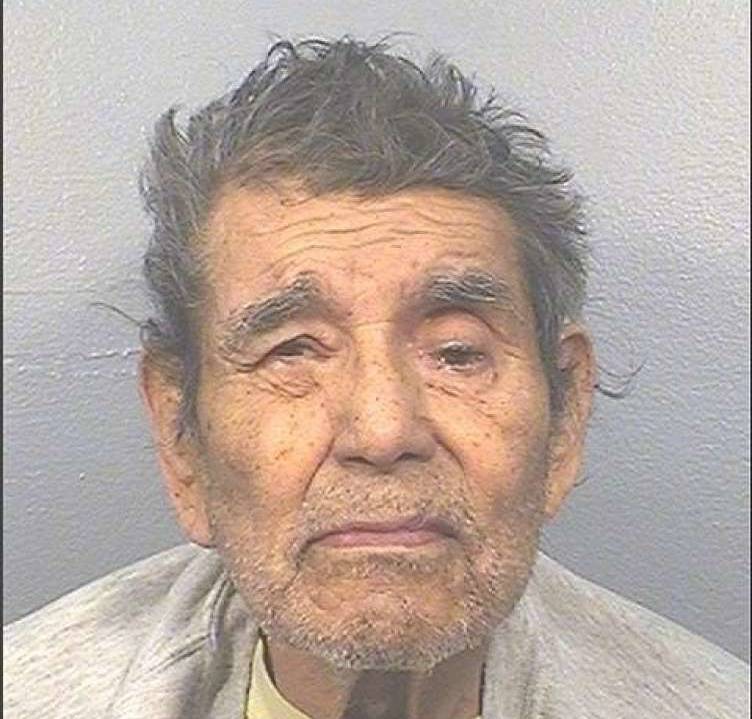Juan V.Corona, serving a life sentence for murdering 25 itinerant farm laborers near Yuba City in 1971, has died.
Corona, 85, died Monday at an undisclosed hospital, Vicky Waters of the state Department of Corrections and Rehabilitation said. He had been serving his sentence for 25 counts of first-degree murder at the state prison just outside the Kings County town of Corcoran.

A labor contractor who hired thousands of fruit and vegetable workers for Sacramento Valley farmers, Corona killed 25 of them, according to authorities who arrested him in 1971.
The bodies were buried in shallow graves on farms and orchards along the Feather River near Yuba City. Most had been hacked and stabbed to death and dismembered, possibly with a machete or meat cleaver. One was shot in the head.
"It was a gruesome manner of killing. He hacked these people to death," Sutter County District Attorney Amanda Hopper told The Associated Press after attending the last of Corona's eight unsuccessful parole hearings in 2016.
He was arrested after a peach farmer who had contracted with him for hired pickers became suspicious upon finding a hole that had been freshly dug, then filled in. Authorities found the body of a man whose head had been cleaved open and his torso riddled with stab wounds.
Nine more bodies were recovered in another orchard five days later, along with receipts made out to Corona, who was immediately arrested.
When authorities searched his truck and house they found a machete, axe, meat cleaver and post-hole digger among other items. They also recovered a ledger containing the names of dozens of laborers Corona had found jobs for, including eight of the victims.
An appeals court overturned Corona's conviction in 1978, ruling he had received incompetent representation from his attorney who called no rebuttal witnesses to the state's 119 prosecution witnesses.
He remained incarcerated while he went on trial again, this time in Alameda County with a new attorney who argued it was actually Corona's brother who, driven by rage, committed the murders.
Corona was again convicted on all 25 counts.
The evidence presented at his trials was largely circumstantial, and neither prosecutors nor Corona offered a motive for the killings.
He testified at his second trial, denying he killed anyone. Prosecutors said he admitted the crimes at a 2011 parole hearing, adding that they were justified because the victims were "winos" who had trespassed.
At his final parole hearing, in 2016, Corona said he couldn't recall killing anyone.
Corona's family defended him before and during his first trial and insisted he was innocent. His wife, Gloria, divorced him after his first trial. The couple had four daughters.
Juan Vallejo Corona was born in the Mexican state of Jalisco on Feb. 7, 1934, and followed his older brothers to the United States in 1950 to pick crops in California.
Family members and others said he was traumatized by a deadly flood that struck the Sacramento Valley in 1955, killing 37 people in Yuba City. Soon after, his family said, he had become convinced "that everyone in this area has drowned in the flood.” He was committed to a state mental hospital in Auburn, where he has diagnosed as schizophrenic and underwent numerous shock treatments.
By the mid-1960s he and his brothers had become successful farm labor contractors, and Corona was described as prosperous in a 1971 New York Times profile.
A friend told the Times that whatever Corona had acquired in his life he had earned by being “hard working, determined and industrious.”
However, his problems with mental illness continued. He was committed again to a mental hospital in early 1970, a little more than a year before the murders were discovered.
Fourteen of Corona's 25 victims -- including four who were never identified -- are buried in a common grave in the community of Sutter, just west of Yuba City.
An inscription on the grave marker reads: "Here lie fourteen men of the sod, four of them known only to God."
This post includes reporting from The Associated Press.
